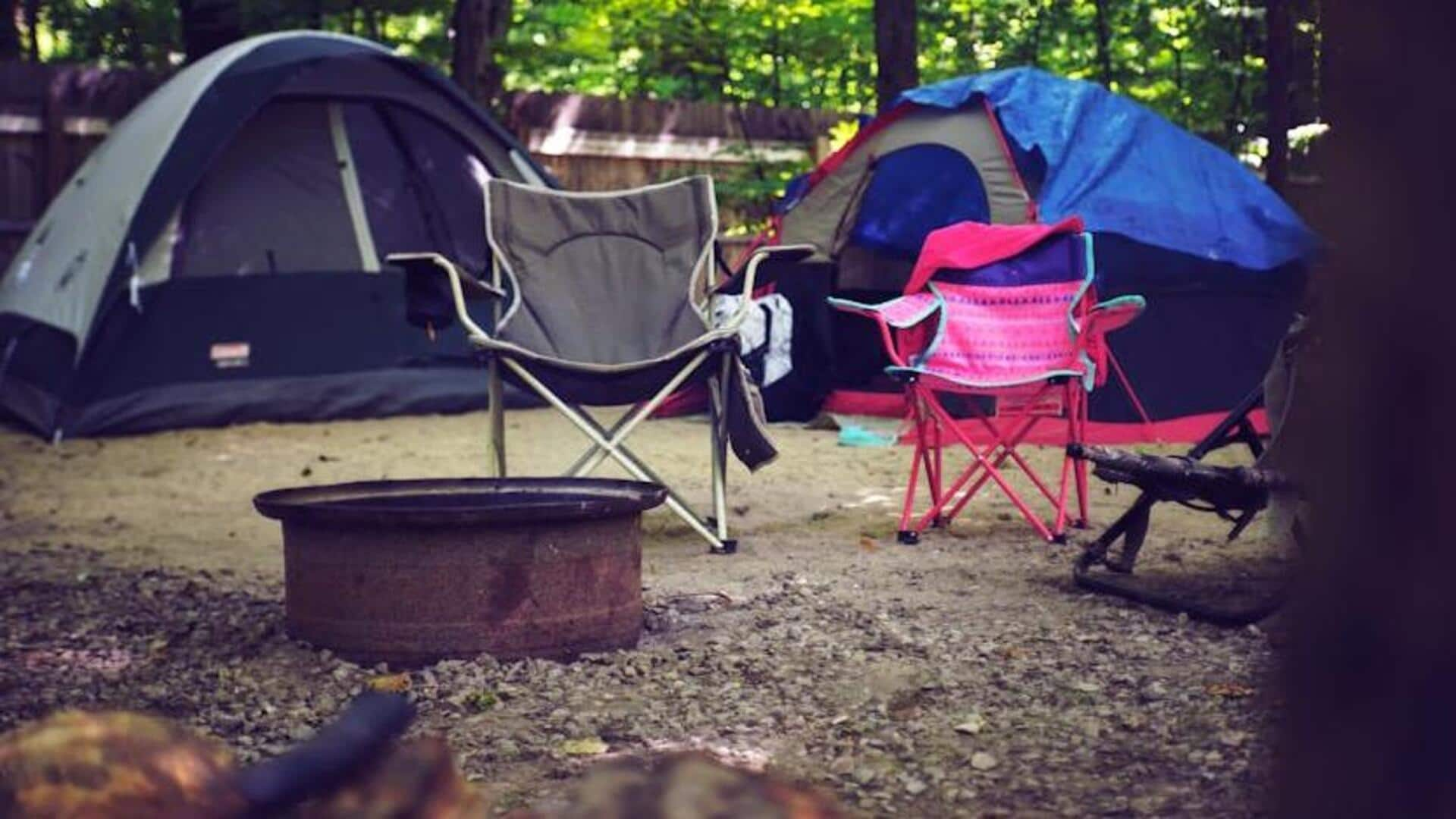
How to reduce plastic use on your next camping trip
What's the story
Planning a camping trip without plastic is both challenging and rewarding. Choosing reusable gear reduces waste and contributes to a healthier planet.
This way not only minimizes your ecological footprint but also enhances the camping experience by focusing on sustainability.
There are numerous ways to incorporate reusable items into your camping routine, from cooking utensils to sleeping arrangements.
Here are tips for a plastic-free adventure.
Cooking gear
Choose reusable cooking utensils
Choose stainless steel or bamboo utensils over single-use plastic. They are durable, easy to clean, and perfect for outdoor usage.
Consider buying a set that contains forks, knives, spoons, and chopsticks.
For food storage, use silicone bags or glass containers with secure lids instead of plastic wrap or bags.
Sleeping arrangements
Pack eco-friendly sleeping gear
For your sleepovers, prioritize sleeping bags made from recycled materials to avoid adding to microplastic pollution. Synthetic fillings, which are common in a lot of sleeping options, are not as eco-friendly.
Also, look out for tents made with sustainable fabrics like organic cotton or recycled polyester. The fabrics would not just make you comfortable but also reduce your carbon footprint on camping trips.
Personal care items
Use biodegradable toiletries
Instead of liquid soap and shampoo in plastic bottles, bring biodegradable soap and shampoo bars. These bars last longer and take up less space in your pack.
For dental care, go for bamboo toothbrushes over plastic ones and opt for toothpaste tablets instead of traditional tubes.
Energy solutions
Opt for solar-powered gadgets
Solar-powered gadgets make an ideal sustainable option for charging devices on camping trips, saving you from using disposable batteries or electricity from non-renewable sources.
These portable solar panels can power lights, phones, and other small electronics with utmost efficiency.
They contribute greatly to reducing fossil fuel reliance, making them the perfect eco-friendly solution for your energy needs on the go.
Hydration essentials
Carry refillable water bottles
Instead of buying bottled water, go for refillable water bottles made from stainless steel or glass.
Most campsites have water stations, so you can easily refill your bottles while you're there.
This simple change goes a long way in reducing the amount of single-use plastics produced on camping trips, making it a sustainable choice for your hydration needs.